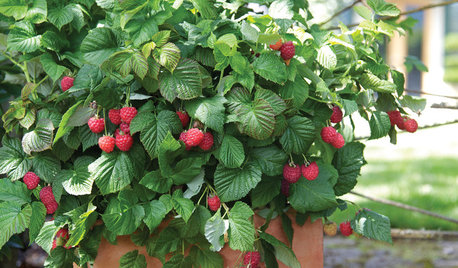Last night I found myself wondering about the relationship (is it linear?) between dormancy and death in a rose. I think when some plants (maybe Hostas) are water stressed they simply retire early into dormancy and then return in the next season (with water of course). I also remember in nursing school being taught that surgical anesthesia puts us into a state that is as near death as possible (from which we can hopefully be brought back). And, so that all makes me wonder whether dormancy is just a pre-expiration for the plant until the necessary requirements for its life are restored (heat in particular) and ....
okay, finally the practical part of my question: IF at the very end of the season a rose were not watered would it simply go into dormancy early and be likely to return in the spring, or would it simply die.
Just curious.









seil zone 6b MI
jacqueline9CA
Related Professionals
70037 Landscape Architects & Landscape Designers · Arden-Arcade Landscape Contractors · Brunswick Landscape Contractors · Lady Lake Landscape Contractors · Pleasant Grove Landscape Contractors · Tinton Falls Landscape Contractors · Markham Landscape Contractors · Palos Hills Landscape Contractors · Oxon Hill Landscape Contractors · Northlake Landscape Contractors · Forest Hill Landscape Contractors · Annapolis Siding & Exteriors · Madison Siding & Exteriors · Westminster Siding & Exteriors · Menomonee Falls Siding & ExteriorslandpersonOriginal Author
roseseek